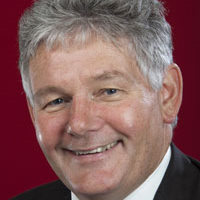Election 2011 - Party Policies - Environment - Global Warming/ETS
24th Jul 11, 5:25pm
by
Global Warming/ETS
Click here to return to the environment summary. Click here to return to the policy homepage.

- Remove the agriculture sector from the ETS legislation.
- Totally suspend the remainder of the ETS unless and until the majority of our trading partners have caught up. (It makes no sense to lead the world when the biggest carbon emitters do nothing to mitigate their emissions output).
- Review Resource Management Act requirements based on suspected future climate changes.
- Promote environmental policies based on sound science, avoiding unnecessary burdens and restrictions on our economy and those most vulnerable in times of economic crisis. (more here)

- Except for fuel sold to electricity companies, require companies who bring fossil fuel into the NZ to purchase and transfer to government enough Kyoto-compliant emissions units to cover the carbon that is released when that fuel is burned.
- Require electricity companies to purchase Kyoto compliant emission units, and transfer these to government.Invest in technology research and development to further reduce our emissions.
- Shift the West Coast economy away from coal mining.
- Provide partial protection to sectors which have no way of reducing emissions and whose international competitiveness would be at risk if they faced the full price of carbon.
- Fund an intensive programme of energy efficiency, renewable energy and transport programmes.
- Assist low income and vulnerable sectors of society to adjust to the resulting changes in the economy. (more here)

- Labour will ensure the effective implementation of the ETS, and strengthen it by bringing agriculture in on 1 January 2013.
- Labour will base the amount of ‘free’ emissions units allocated to agriculture on 90 per cent of its 2005 emissions.
- Labour will put into R&D the extra revenue raised from the 2013 ETS entry date for agriculture.
- Labour will encourage research on, and experimentation with, a range of alternative technologies and farming practices, including low intensity farming.
- Labour will halve New Zealand’s per capita transport emissions by 2040.
- Labour does not support government capital, through an SOE, being invested into lignite development unless and until the resulting carbon emissions can be captured and stored economically and permanently. This technology is currently experimental, and unlikely to be practical in the foreseeable future.
- Labour will support our Pacific neighbours and other developing countries in their efforts to adapt to climate change. (more here)

- Repeal the current ETS and replace with a scheme that sees all groups pay a fairer share of the cost of reducing global warming/climate change. (more here)

Not set out on their website.

-
Extend the transitional implementation phase for the electricity, industrial, and transport sectors.
The 2011 ETS Review Panel recommended moving to full obligation in three equal steps between I January 2013 and 1 January 2015. It is National’s intention to implement this recommendation. - Maintain a fixed price option until at least 2015.
- Introduce offsetting for pre-1990 forest land owners from 1 January 2013.
-
The agriculture sector is liable to surrender units for agricultural greenhouse gas emissions from 1 January 2015.
National will review this in 2014. We will not impose a liability unless there are practical technologies to reduce emissions, and our trading partners have made further progress with their climate change policies to reduce emissions. (more here)

- UnitedFuture will promote “no regrets” policies to address climate change – i.e. measures that will provide both environmental and economic benefits.
- UnitedFuture will seek solutions that offer positive alternatives to otherwise punitive measures e.g. rather than just a carbon tax on coal used to generate electricity (and higher costs for consumers), sequester the carbon or encourage the generator to plant a new forest.
- UnitedFuture will promote both public and private climate change initiatives e.g. working with the banks to finance home insulation and retro-fitting.
- UnitedFuture will support the creation of CO2 emissions trading mechanisms to provide economic incentives to reduce greenhouse gases and boost carbon capture and other greenhouse gas reduction/mitigation efforts whilst continuing to oppose a general carbon tax. (more here)















We welcome your comments below. If you are not already registered, please register to comment
Remember we welcome robust, respectful and insightful debate. We don't welcome abusive or defamatory comments and will de-register those repeatedly making such comments. Our current comment policy is here.